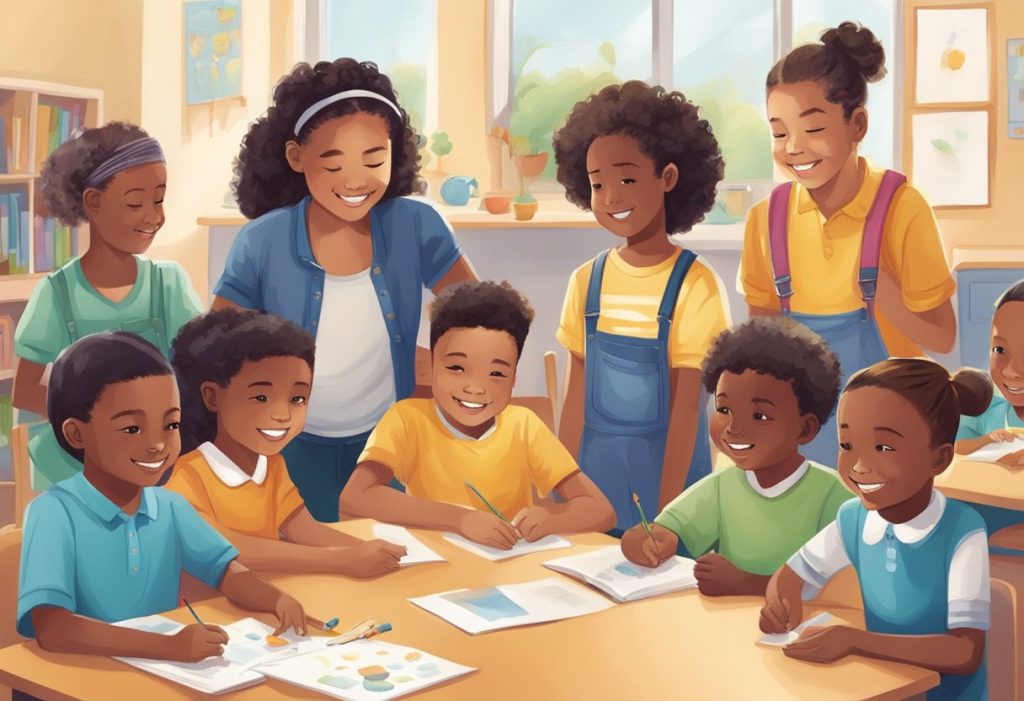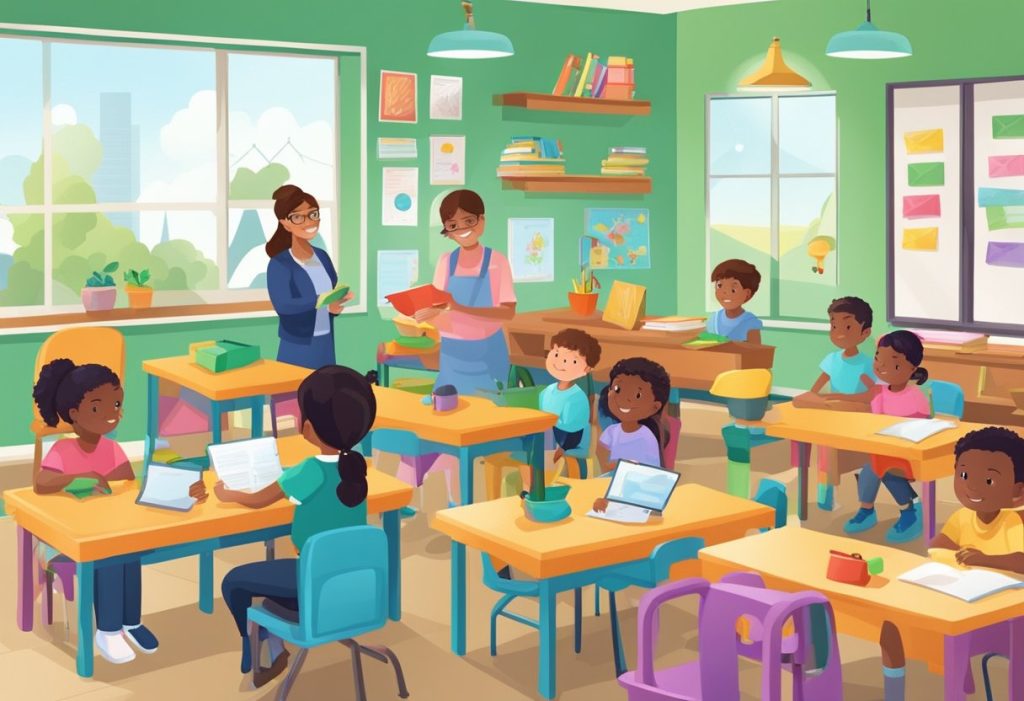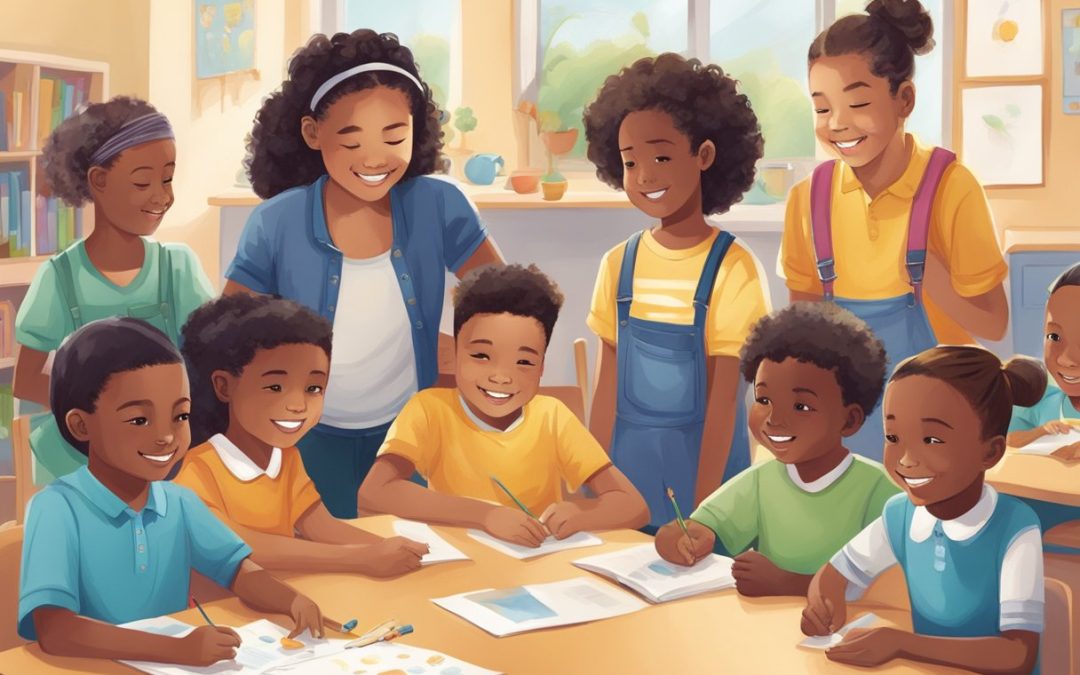Every child has a distinct set of talents and abilities, and collectively it is our duty to nurture these traits. Particularly with learning disabled kids, their different types should be recognized but more importantly facilitated. What then becomes paramount for us is that we understand them and have empathy towards them since they are our real source of success.

As these intelligent young minds are supported, an all-inclusive and encouraging setting begins to take shape. It is important to note that experiencing learning disabilities does not necessarily imply low intelligence or lack of talent in a child. They only mean that we need adaptability in the methods we use on such children. By focusing on personalized strategies and resources, students can excel academically and personally despite any hardship faced by them.
We measure our support according to how much progress every child makes as well as their resilience. Our work includes offering tools and encouragement; thereby turning education into a path of empowerment rather than failure. This way, we become part of their journey not just witnessing their progress.
Understanding Learning Disabilities in Children

This is why it is so important to identify developmental delays early through the signs: Understanding Learning Disabilities in Children.
Identifying Signs and Symptoms
Our journey starts with identifying clues which may indicate that a child may be struggling with learning difficulty. These include:
- Difficulties reading, writing or doing math at levels consistent with the individual’s age or intellectual capacity.
- Trouble remembering things, staying organized or following instructions.
- Inconsistent schoolwork, often accompanied by being easily distracted or avoiding certain tasks; this may point toward a deeper problem when it becomes chronic.
But, when continuous they might suggest possible underlying issues hence need for further assessment services.
The Importance of Early Diagnosis and Intervention
Early identification can lead to interventions that significantly increase academic performance as well as other social skills among children who have been diagnosed with some form(s) of disability before entering school.
Early intervention reduces the amount of time before educational delays get too big.
This is how we are helping their academic life plus raising their self-esteem and social abilities, in a proactive manner.
Different Types of Learning Disabilities
It is therefore important to note that learning disabilities manifest themselves in different ways, each with its own specific challenges. These are:
- Dyslexia: characterized by difficulties with accurate or fluent word recognition;
- Dyscalculia: difficulty understanding numbers, learning math facts, calculating math problems;
- Dysgraphia: This is when handwriting becomes an issue for a child resulting in illegible writing having no flow or connection between letters at all.
To accommodate these diverse needs of children diagnosed with various types of learning impairments it is crucial to implement individualized support measures so as to enhance their engagement in the learning process.
Support Systems and Assistance Strategies
We have many paths on which every child who suffers from learning disabilities travels through. We can help these outstanding youngsters together but differently though. Let us look at some concrete examples for doing this:
Educational Support and Special Education Programs
In Australia, assistance comes in various forms. Within schools’ environments there exist special education programs for students with learning disabilities. Individual Education Plans (IEPs) are needed for personal goals and necessary accommodations that should be made under any circumstance.
Major classroom adaptations:
- Alterations in curriculum
- Additional staff members for assistance
Assistive Technology: They can consist of text-to-speech programs as well as audiobooks that make reading easier for students with reading difficulties.
Parenting and Caregiver Guidance
Parenting children with learning disabilities means being advocates for them and actively participating in their education. Parents may:
- Join Support Groups: Sharing experiences and strategies can help in dealing with everyday challenges.
- Educational Workshops: These sessions are designed to equip parents with skills to assist their children’s learning at home.
Many local care initiatives run by NGOs in Australia offer families tools to better understand who their child is. We should arm parents with knowledge and methods that will reinforce learning at home.
Therapy and Mental Health Assistance
Therapies are crucial components of successful support systems for disabled learners. While therapists work on building skills, mental health professionals address any emotional problems.
- Speech and Language Therapy: Increases communication skills
- Occupational Therapy: Enhances fine motor skills & independence
A child’s wellbeing is based on the availability of counseling services, as well as emotional support provided both within the family and externally. Regular visits to psychiatrists can aid in dealing with stress or anxiety brought about by numerous psychological issues. We need a holistic approach towards taking care of our kids’ minds.
Navigating Emotional and Social Challenges
In examining the journey of children with learning disabilities, we recognize the emotional and social obstacles they face. We must guide them through these difficulties, so that they come out of them with confidence and a strong support network.
Cultivating Self-Esteem and Resilience
We understand our children may experience self-doubt but that is why it is important to provide them with positive messages that reinforce their self-awareness. Positive reinforcement can be very effective, here’s how:
- Celebrate small victories: Each accomplishment no matter how minute helps in fostering a sense of success.
- Encourage hobbies and talents: When children participate in activities they are good at; it builds their self-esteem.
Teaching resilience means helping kids learn coping mechanisms for anxiety and stress. We need to ensure they have techniques for remaining calm such as:
- Slow breathing
- Tense and release
- Addressing Bullying and Peer Relationships
Bullying can become a big issue when differentiating our children are targeted sometimes because of being different from others. In response, we have:
- Open discussion: Kids should feel free to talk about their experiences without worrying about what people will say.
- Empathy and role-playing: It is possible for children to improve on their social skills by understanding different points of view.
We also need to create guidelines for healthy peer relationships:
- Foster inclusion through participation in social groups.
- Impart respectful communication techniques while teaching assertiveness.
Fostering a Supportive Home Environment
An enabling family life is key in managing emotional disturbances. Here are some few suggestions:
- Have Family Meetings – It allows everyone to express themselves openly, thereby providing mutual support.
- Routine & Structure – A predictable environment helps reduce anxiety levels thus lowering stress levels as well.
Consider siblings throughout the intervention process; they too need knowledge regarding the struggles faced by their brother or sister so as to achieve a harmonious home environment.
To keep emotionally healthy, our whole family must stress on communication, acceptance and support. Let’s strive to make every member of the family feel valued and understood, especially those with learning disabilities.
Empowering Future Growth and Independence
We have to hone in on the individual strengths and talents of children with learning disabilities in order to help them become independent and reach their full potential. By supporting their path to self-reliance, we are opening doors for a brighter tomorrow whether it is higher education or employment or personal life.
Encouraging Strengths and Interests
Everybody thrives when they are involved in something they love. Identifying and fostering their strengths and interests among young people with learning disabilities is crucial as it helps build self-esteem and motivation. For instance, if a child has an artistic talent providing him with art supplies can lead to great strides toward growth.
Art
- Resources: Quality art supplies, workshops,
- Opportunities: Local art competitions, exhibitions
Music
- Resources: Instruments, music lessons,
- Opportunities: School band, community performances
Life Skills & Independence for Young People
Gaining life skills is essential for children with learning disabilities as they aspire towards independence. We need to train them real-life abilities like budgeting or cooking while continuing teaching soft skills such as communication or decision making.
Budgeting
- Tools: Budgeting apps, Economic tutors.
- Practices: Savings schemes, “spend or keep” games
Cooking
- Tools: Step-by-step recipes, Cooking courses
- Practices: Meal preparation, Kitchen tips on safety
Transition to College and Work
The transition to college or work is often an overwhelming experience for young persons with learning disabilities. We have a duty to make sure they are supported and educated through this phase.
Getting Ready for College
- Activities: Career guidance, accommodation applications
- Tools: Open days at the university; Guides tailored for students with disabilities in colleges
Preparation for Employment
- Actions: Resume building programs; Mock interviews sessions.
- Tools: Job search engines and internship sites; Programs that provide mentoring opportunities.
Focusing on these areas means that we are not only helping young people with learning difficulties adapt to the present but rather enabling them to shape their future.

